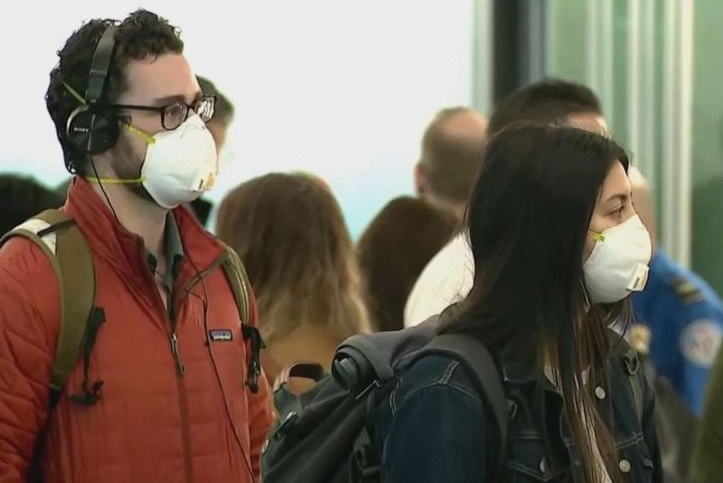The World Health Organization (WHO) has recently classified a new variant of the SARS-CoV-2 virus as a variant of concern. Experts from the WHO have named the new strain Omicron. They have said that the new strain carries a huge number of mutations. Scientists have claimed that the early findings have shown that the new variant now known as omicron might be linked to an elevated risk of reinfection.
The new variant of the virus has been reported to the WHO from South Africa for the first time. However, it has also been found in Belgium, Botswana, Hong Kong, and Israel. Many countries across the world have imposed a ban on travel to and from South Africa. Health officials from the UK have said that travelers from South Africa, Zimbabwe, Lesotho, Namibia, Botswana, and Eswatini will not be allowed to visit the UK unless they have Irish nationality or they are citizens of the UK. The officials from the US government have decided to ban flights from South Africa, Zimbabwe, Lesotho, Namibia, Botswana, Mozambique, Malawi, and Eswatini.
They have followed the measures taken by the European Union. The US officials have said that decision will come into effect from the next week. As per the report, Brazil and Australia as well have imposed travel restrictions on South Africa. The officials from the WHO have said that the number of cases linked to the new variant has been rapidly shooting up in the majority of provinces in South Africa. The UN Public Health agency has said that the new variant that has been initially named B.1.1.529 carries multiple mutations that are quite worrisome.
Experts have said that the first known infection linked to the new strain has been reported in the second week of November. As scientists are trying to identify how transmissible the new variant is, the WHO has said that it can take a couple of weeks to determine the impact of the new variant of coronavirus.
One of the top health officials from the UK has cautioned that existing COVID19 shots might be less efficient against the new variant. A professor named James Naismith from the University of Oxford has said that though the emergence of the new variant is bad news, it is not catastrophic. James Naismith who is also a structural biologist at the University of Oxford has said that the prevalence of multiple mutations in the new variant shows that it might be spreading faster as compared to other strains of the virus.
However, determining the transmissibility of the variant is not that simple rather it depends on how all these mutations work as a group. One of the members of the Scientific Pandemic Influenza Modelling group (Spi-M), Dr. Mike Tildesley has said that only 24 percent of the South African population has been vaccinated against COVID19 that can lead to the rapid spread of the virus in the region. On the other hand, one of the top infectious disease experts in the US, Dr. Anthony Fauci has said that though the reports of confirmed cases linked to the new variant omicron have raised red flags, COVID19 shots might be effective against severe infection caused by the new strain.
Dr. Anthony Fauci has said that it is impossible to say whether the new strain can dodge protective antibodies derived from COVID19 shots until it is properly tested. The officials from the WHO have advised countries that are imposing travel restrictions, stating that governments should opt for a risk-based scientific approach. Apart from the European Union, the UK, and the United States, countries such as Japan, Iran, Brazil, Australia, and India as well have imposed travel restrictions from and to South Africa.
The Australian government has said that flights from South Africa, Zimbabwe, Lesotho, Namibia, Botswana, Mozambique, Malawi, Seychelles, and Eswatini will be suspended for 14 days. People who have visited these nations in the last two weeks and do not have Australian citizenship will not be allowed to visit Australia. The officials from Japan have said that people who are coming from Southern Africa will have to stay in quarantine for 10 days and will have to undergo a series of tests in that period.
India as well has imposed stricter restrictions for people who are coming from South Africa, Hong Kong, and Botswana. Iran and Brazil as well have banned travelers arriving from six South African nations from entering their territories. Iranian citizens will have to furnish negative COVID19 tests two times to enter the country. The Health Minister of South Africa, Joe Phaahla has said that the travel restriction imposed by several countries on South Africa is unethical and unjustified. He has said that the reactions and measures that have been taken by these countries do not comply with the guidelines of the WHO. The Chief of the South African Medical Association, Angelique Coetzee as well has supported the opinion of the South African Health Minister. She has said that the travel restrictions imposed on her nation are impulsive.
The class of variant of concern is the leading division of high infectious variant of coronavirus that has been defined by the World Health Organization (WHO). The WHO’s decision to include the new strain in the category of the variant of concern adds more scientific concerns about the potential of the new strain known as omicron. As the variant has multiple mutations, it is considered to be able to spread more rapidly and dodge some sort of immunity derived from COVID19 shots. However, experts do not have any real-world data on the new variant as of now. Experts have said that at present, it is hard to say that the new strain will be spreading faster than other variants or will be able to cause a more severe infection.

Paul is an American-based writer covering Latest business trends. Paul cover Business and media for many news sites. He has been breaking news and writing features on these topics for major publications since 2012. Paul prefers writing about business news keeping science and technology into perspective.



